In a significant shift within the education sector, schools across the United States are increasingly embracing phonics-based approaches to teaching reading, marking a return to this method after several decades of promoting various literacy learning techniques. This resurgence comes in response to mounting evidence that systematic phonics instruction is one of the most effective ways to develop literacy skills among young learners.
Phonics instruction emphasizes the connection between letters and their corresponding sounds, enabling students to decode words effectively. Educators and researchers highlight that this method is particularly beneficial for early readers and those struggling with literacy, as it builds a strong foundation for reading fluency and comprehension.
Historically, reading instruction has seen a variety of approaches come in and out of favor, including whole language and balanced literacy methods that prioritize context and meaning over phonetic understanding. However, recent studies underscore the effectiveness of phonics, prompting many schools to reevaluate their teaching strategies and return to this foundational approach.
A new report from the National Reading Panel supports the resurgence of phonics, indicating that systematic phonics instruction can lead to significant improvements in reading abilities. Schools that have incorporated structured phonics programs are reporting enhanced academic performance and greater confidence among students, reinforcing the notion that phonics is indeed making a comeback.
In response to this evidence, many school districts are now investing in professional development for teachers, focusing on effective phonics instruction techniques. This includes workshops and training sessions to ensure educators are well-equipped to implement these methods in their classrooms effectively.

Additionally, the importance of parental involvement in reinforcing phonics skills at home is gaining recognition. Educators encourage parents to engage in activities that support their children’s reading development, fostering a collaborative approach to literacy that complements classroom instruction.
This renewed focus on phonics is part of a broader movement to enhance literacy education and ensure that all students develop strong reading skills. As schools continue to adopt evidence-based practices, it is clear that phonics, once overshadowed by other approaches, will play a pivotal role in shaping the future of reading instruction.
As the educational landscape evolves, educators, parents, and policymakers remain committed to improving literacy outcomes for students, ensuring that reading remains a vital skill for success in life and learning.
Language Learning that may be of interest:
Get a special discount by quoting code AISLMALL during CHECKOUT.
Duolingo: Language Learning

Master new languages with the world’s most popular and effective language learning app. Duolingo’s fun, gamified lessons and adaptive algorithms make language practice engaging and personalized for each user. From Spanish and French to Klingon and High Valyrian, choose from over 30 languages to unlock new opportunities. With bite-sized daily lessons, points, levels, and leaderboards, Duolingo keeps you motivated to build valuable language skills. Whether you’re a beginner or advanced learner, Duolingo provides a free, accessible path to fluency.
EAL Inclusive: Live English Accelerator Classes for Students

EAL Inclusive online English lessons, led by qualified teachers, help children improve proficiency for success in international schools. Personalized lessons focus on reading, writing, speaking, and listening skills, tailored to each student’s level, goals, and interests through engaging activities. Our student-centred online English lessons empower every child to improve their English proficiency and build the confidence needed to excel in an international school environment.
LingQ: Language Explorer Pass
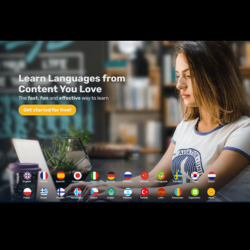
LingQ is a fun, simple way to learn languages from authentic, interesting content. Learning the language from the language itself, just as most children learn their own language. With LingQ Premium enjoy unlimited learning of over 40+ different languages from 1000’s of hours of authentic content. The LingQ Language Explorer Pass gives unlimited access to 20 languages, offering audio transcripts, vocabulary tools, and progress tracking.
Novakid: Online English Classes For Kids
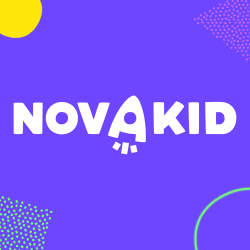
Novakid is Europe’s #1 online English school for kids aged 4-12, trusted by families worldwide. With certified native-speaking teachers, it offers interactive lessons that make learning fun and effective. Using games, activities, and full-language immersion, Novakid helps kids build confidence and English fluency. Join us in shaping your child’s future with a free trial lesson and a curriculum designed for success.
Oxford University Press: Reading Club (Over 1000 ebooks with audio)
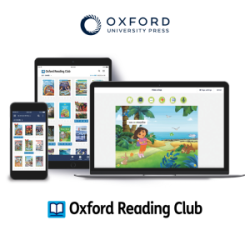
Oxford University Press is a department of the University of Oxford. It furthers the University’s objective of excellence in research, scholarship, and education by publishing worldwide. In fulfilling its objective of the furtherance of learning and culture, OUP is committed to continuous development of its scholarly and educational publishing, responding to the growing need for school, college, and academic books and information via diverse media, and extending and strengthening its international activities.
PalFish: Live English Class 1 on 1
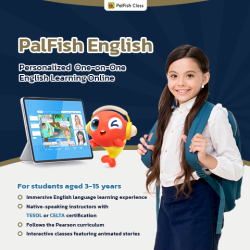
PalFish is an education technology company founded in Beijing, headquartered in Singapore and with regional offices around the globe. PalFish Class offers personalized online English lessons for kids, featuring Pearson-accredited content and tailored to global standards like CCSS and CEFR. With 50,000+ certified native-speaking teachers and AI-driven tools, the platform ensures engaging lessons, after-school support, and quality education.
TutorABC: English and Chinese Learning

Speechsquare: Language Learning
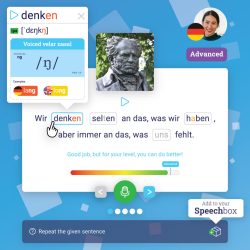
Speechsquare is an AI Speech Analytics company. We optimize the tutoring and the assessment of oral skills. Our proprietary AI allows granular analysis of speech up to the phoneme, enabling instant visual and audio feedback for the learner and powerful analysis tools for language specialists. Speechsquare is available in 7 languages: English, Chinese, Korean, Japanese, Spanish, French, and German.
UTalk: Language Learning
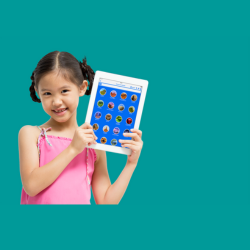
uTalk is a British language company based in London UK. Established over 30 years ago. uTalk is a language-learning app offering microlessons, games, and quizzes in over 150 languages. It helps build essential listening and speaking skills for everyday communication, available on mobile and computer. It’s used by schools globally as a reinforcement tool in language programs. We have built up the knowledge and expertise of what it takes to learn languages.
Reference:
Schools Are Teaching Reading With Phonics. Here’s Why. (2022). Retrieved from The New York Times: https://www.nytimes.com/2022/10/06/education/learning/schools-teaching-reading-phonics.html.








